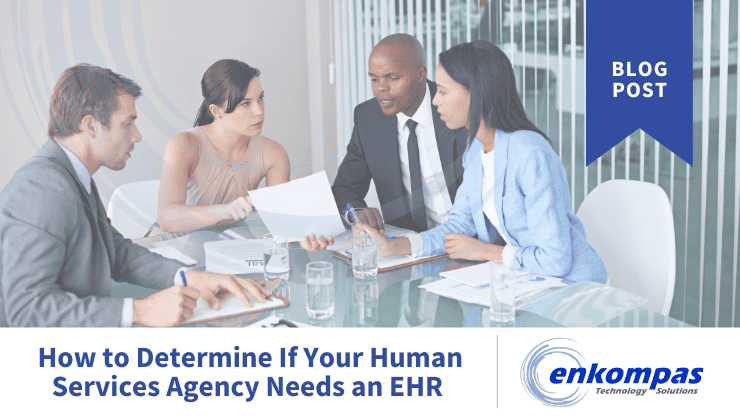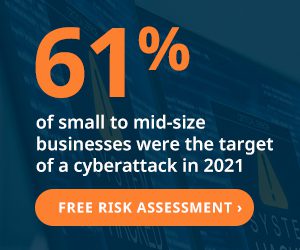As the landscape of Human Services evolves, determining whether your agency needs an EHR (Electronic Health Record) system can be challenging. While Pennsylvania doesn’t have universal mandates requiring all Human Services Agencies to adopt EHRs, several factors can influence whether implementing an EHR is necessary for your organization.
Those factors include whether your agency provides services in behavioral health, intellectual and developmental disabilities, children and family services, and more.
Those factors include whether your agency provides services in behavioral health, intellectual and developmental disabilities, children and family services, and more.
Factors to Consider
- Medicare/Medicaid Participation If your agency bills Medicare or Medicaid, adopting an EHR might be essential. These programs often have specific requirements related to health records, especially for meaningful use and reporting purposes. Ensuring compliance with these regulations can necessitate the use of an EHR system.
- Example: An agency offering waiver services funded by Medicaid may need an EHR to track service delivery, documentation, and billing in compliance with Medicaid requirements.
- State Regulations Although Pennsylvania does not mandate EHRs for all human services agencies, certain programs or funding sources might have specific requirements. Agencies should consult the Pennsylvania Department of Human Services or their licensing bodies to understand the regulations that apply to their services.
- Example: An agency that receives state funding for foster care programs may need to adopt an EHR to meet documentation and reporting requirements outlined by the state. They may need to implement a foster care portal for host families to coordinate care.
Experience Growth in Your Company Through EHR Optimization
- Accreditation Bodies If your agency seeks or maintains accreditation from organizations like The Joint Commission (TJC), the Commission on Accreditation of Rehabilitation Facilities (CARF), or the Council on Accreditation (COA), using an EHR may be expected. These bodies often emphasize the importance of EHRs for maintaining high standards of quality and safety in service delivery.
- Example: A behavioral health agency aiming for CARF accreditation may need an EHR to demonstrate compliance with CARF’s standards for quality care and documentation practices.
- Payer Requirements Some insurance companies and managed care organizations may require electronic documentation and billing. These requirements could make adopting an EHR system necessary to streamline operations and ensure compliance with payer guidelines.
- Example: A multi-service agency providing multiple services may need an EHR to meet the billing and documentation requirements of various insurance payers, including managed care organizations.
If any of these factors apply to your agency, your agency needs an EHR.
Critical EHR Functions for Human Services Agencies
When evaluating the necessity of adopting an EHR , consider the following functions that an EHR system can provide across different types of human services:
- Electronic Visit Verification (EVV): Tracks service delivery, particularly in home and community-based settings, ensuring compliance.
- Example: An agency providing in-home support services can use EVV to verify visits and comply with federal and state requirements.
- Electronic Medication Administration Record (eMAR): Manages and tracks medication administration, reducing the risk of errors.
- Example: An agency administering medications to clients can use eMAR to ensure accurate medication management.
- Billing and Claims Management: Automates billing processes, streamlining revenue cycles for Medicaid, Medicare, and private insurers.
- Example: An agency offering therapy and counseling can use EHR to handle complex billing processes for multiple payers.
- Client Portals: Provides clients with secure access to their health information, appointments, and direct communication with providers.
- Example: An agency serving children and families can use a client portal to allow parents and guardians to access care plans and communicate with providers.
- Reporting Capabilities: Generates reports for compliance, performance analysis, and regulatory reporting.
- Example: A multi-service agency can generate reports to meet state and federal reporting requirements across various programs, including IDA, behavioral health, and children’s services. The data could be shared or used for decision making, while paper-only processes will not allow easy reporting.
- Care Coordination: Centralizes documentation, assessments, and treatment plans, enhancing collaboration among providers.
- Example: A children and family services agency coordinating care across multiple disciplines can use an EHR to ensure all providers have access to up-to-date information.
- Bed Management: Tracks bed availability and occupancy in inpatient or residential settings, optimizing resource use.
- Example: A residential treatment center for children and adolescents can use bed management tools within an EHR to manage admissions and bed assignments efficiently.
- Attendance Tracking: Monitors client participation in programs or services, aiding in billing, compliance, and service planning.
- Example: A day program for individuals with developmental disabilities can use EHR-based attendance tracking to ensure accurate billing and service planning.
- Referral Management: Streamlines referral tracking, ensuring timely service provision and communication between providers.
- Example: An agency can use referral management tools to track and manage referrals for services such as foster care, counseling, and educational support.
These functions not only support regulatory compliance but also improve operational efficiency, service delivery, and client satisfaction across a broad range of human services.
Next Steps to Determine if Your Agency Needs an EHR
If you’re still uncertain about whether your agency needs an EHR, consider the following steps:
- Consult Compliance Experts: Speak with a healthcare attorney or compliance expert to review relevant federal and state regulations.
- Review Payer Contracts: Check with your insurance companies or payers to see if EHR use is required for reimbursement.
- Contact State Agencies: Reach out to the Pennsylvania Department of Human Services or other relevant state bodies for clarification on specific requirements.
By carefully considering these factors and functions, your agency can make an informed decision about whether an EHR system is necessary for your operations.
About enkompas Technology Solutions
enkompas powers your entire technology environment, working closely with your team to provide strategic enterprise technology solutions. With nearly 30 years of experience as a trusted managed IT services partner, our goal is to help you build a secure, scalable organizational roadmap. Contact us for more information on how enkompas Technology Solutions can help your organization select an EHR, achieve EHR implementation success, and support your secure tech environment with our subject matter expertise and proven Organizational Change Management Blueprint.


